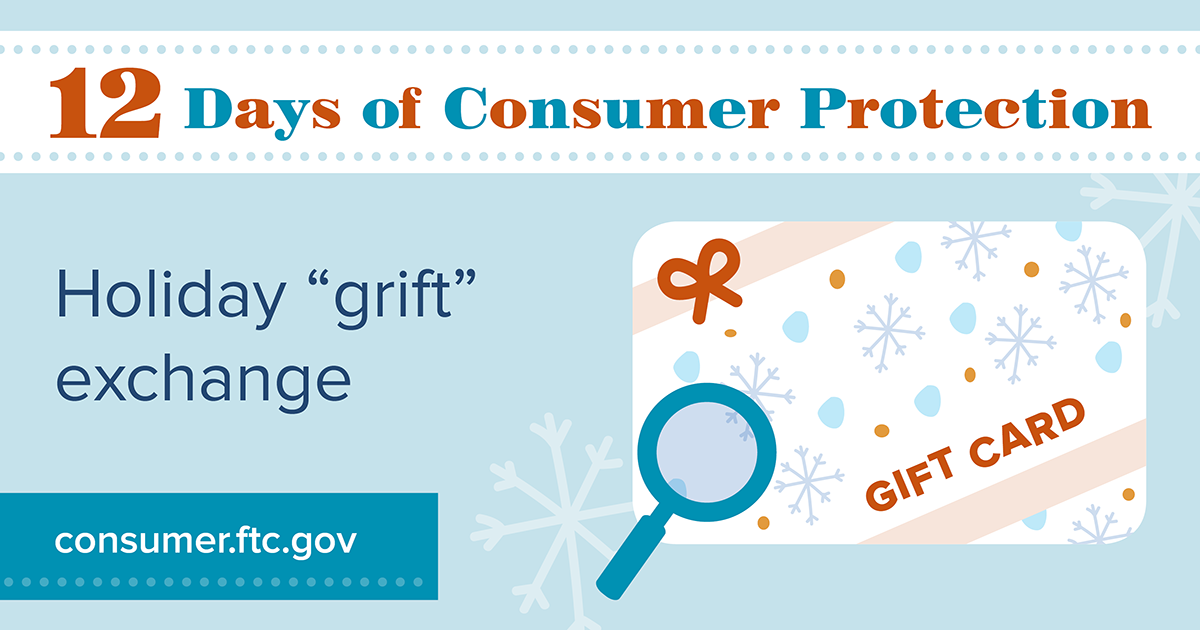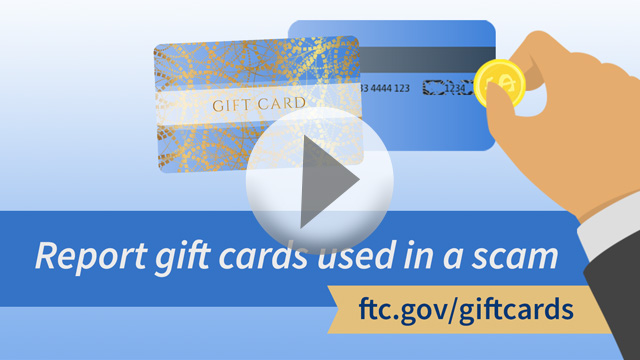It’s the 4th day of Consumer Protection and ’tis the season of…gift cards. Even in Santa’s workshop, it’s one of the most popular ways to give to family and friends for the holidays. But gift cards also are a favorite way for scammers to steal people’s money. Anyone who demands that you pay them with a gift card, for any reason, is always a scammer. Simply put, no matter what the story is, never pay with a gift card.
Back to the fun stuff: Giving gift cards. Here are a few things to keep your season merry and bright:
- Buy gift cards from sources you know and trust. Think twice about buying gift cards from online auction sites, to avoid buying fake or stolen cards.
- Inspect gift cards before you buy. A gift card should have all its protective stickers in place. Report the card to the store if anything looks scratched off or damaged.
- When you buy, save the receipt. Keeping the gift card receipt can be helpful if you run into problems with the card.
- Treat gift cards like cash. Report a lost or stolen gift card to the card’s issuer immediately. Most card issuers have toll-free numbers you can find online to report a lost or stolen card. Depending on the card issuer, you may even be able to get some money back.
Spot someone who wants you to pay with a gift card? Tell the FTC: ReportFraud.ftc.gov.


